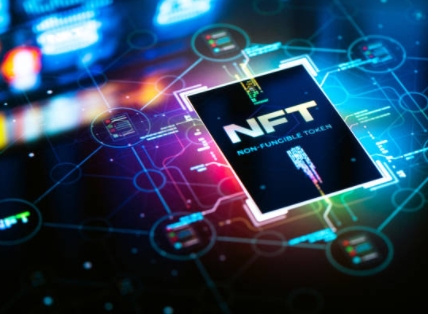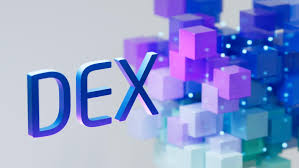Where are the criminal risks of crypto market makers?
Crypto market makers' criminal risks' location?
01 What is a Market Maker in the Cryptocurrency Market?
A Market Maker, a fancy term often associated with the stock and futures markets, has left countless beginners in awe of its professionalism and high entry barriers. When it comes to the cryptocurrency market, the presence of Market Makers further confounds people.
In fact, Market Makers are not as mysterious as they seem. They were invented by the Dutch to solve the liquidity problem in the market. Simply put, if you want to buy a certain stock (it can be futures or a type of cryptocurrency) at a price of 100, but there are no sellers at that price or at that time, the transaction cannot take place. This lack of liquidity in the market hinders proper allocation of funds and resources, ultimately leading to decline. At this point, a middleman emerges who is willing to sell you the stock (futures or cryptocurrency) at a price of 100. He acquired this stock from the previous party at a price of 90. In this way, you get the stock, he makes money, and the exchange earns fees. Everyone has a bright future.
Therefore, Market Makers are a mechanism that mature markets should have. They increase market liquidity and act as lubricants. The cryptocurrency market is no exception.
- Telegram against MetaMask It is not only a battle for Web3 traffic entrance, but also a battle between Web2 and native encryption.
- SubDAO Divide and Conquer, a key step in the endgame of MakerDAO
- LianGuai Daily | JPEX involved amount has reached HKD 1.2 billion; Cryptocurrency startup Bastion completes $25 million financing.
Currently, many cryptocurrency exchanges have Market Makers, allowing people to buy and sell in the cryptocurrency field more smoothly. The principle is no different from that of market makers in the securities market. However, Market Makers in the cryptocurrency market face much higher criminal risks.
02 What are the risks for Market Makers?
China’s securities trading market has strict access policies for Market Makers. For example, if you want to be a Market Maker in the science and technology innovation board, you must meet the hard conditions of having a net capital of no less than 10 billion yuan for the past 12 months and a rating of A or above in the past three years. You also need to apply to the China Securities Regulatory Commission and obtain their approval before you can be “licensed”.
Of course, this is in the A-share science and technology innovation board, which combines beauty and wisdom and is a legitimate “gambling den”. It cannot be compared to our cryptocurrency market, where there is little regulation. Major overseas Market Makers, such as Jump, Wintermute, Amber Group, B2C2, and DRW Trading, are not without problems (some have been heavily criticized due to significant fluctuations in individual projects), but the main point is that they are not regulated by Chinese criminal law, so there is no need to discuss them here. Let’s focus on the Market Makers of domestic exchanges.
First of all, it should be pointed out that the current domestic secondary market for digital assets in China is mostly based on consignment and resale models, and does not yet involve market makers (although they may still be manipulated). We are mainly talking about those exchanges that have gone underground and hidden in mysterious corners.
As we all know, after the announcement of the 94 Notice, many exchanges collapsed and sought survival overseas, with only a few turning underground. These exchanges that have made a long journey often face a lack of liquidity due to the loss of traffic, so they need market makers to revitalize the market. However, this often becomes their “evidence of wrongdoing”.
The direct reason is that the 94 Notice explicitly prohibits any so-called token financing trading platform from engaging in exchange transactions between legal tender and tokens or “virtual currencies”, buying or selling tokens or “virtual currencies” as a central counterparty, and providing pricing, information intermediation and other services for tokens or “virtual currencies”.
As a result, if market makers are introduced from external sources, it is acceptable. Otherwise, this kind of behavior, which acts as both a referee and a player, is easily regarded as “market manipulation”. I am not saying that it constitutes the crime of “market manipulation”. Of course, this charge is not accurate. The correct term is “manipulation of securities and futures markets”, which punishes those who “cut leeks” through illegal means in regular and legitimate securities and futures markets. In the gray area of our cryptocurrency industry, we don’t need this charge. However, if one engages in self-trading, disseminates false information, and manipulates the market for profit, it is possible to touch upon the crime of fraud. Of course, the specific situation needs to be analyzed specifically. I did not say that all of these actions will constitute the crime of fraud, but investors need to be cautious about the persistence (reporting) of angry investors.
In addition to the crime of fraud, another possible charge is the all-purpose crime in the field of economic crimes – the crime of illegal business operation. Setting aside some qualitative controversies in practice (as a defense lawyer in a new field, I have objections to the abuse of this charge), investigative agencies like to use this charge to capture all offenders. Therefore, from a compliance perspective, this charge is like a sword of Damocles hanging over your head, which may puncture you with “original sins” from time to time.
Of course, in reality, there are also some gambling parties disguised as market makers, directly engaging in gambling activities. There is no doubt that this is suspected of constituting the crime of operating a gambling establishment, which will not be discussed here.
03 Conclusion
Market makers are often associated with “whales” and become the nightmare of countless retail investors. In the field of cryptocurrency regulation, which is in a state of strong ambiguity, market makers do seem to be more “active”. However, if they go too far, some players will not just lose the game and flip the table so simply.
Earn the money you deserve, it’s always the right thing to do.
We will continue to update Blocking; if you have any questions or suggestions, please contact us!
Was this article helpful?
93 out of 132 found this helpful
Related articles
- How did North Korean hackers use LinkedIn and social engineering to steal $3.4 billion in cryptocurrency?
- Exclusive Interview with Wintermute Co-founder Accumulated Trading Volume of 20 Trillion USD in 6 Years, the Secret to Success of a Well-known Market Maker
- LianGuai Daily | FTX Claims Portal Website Has Resumed Operations; JPEX Temporarily Shuts Down All Functions of the Gaming Hall
- Why are Telegram bot races so popular? How will they develop in the future?
- The Hong Kong virtual asset licensing system faces a dilemma the rise of JPEX while institutional enthusiasm for applying for licenses decreases.
- Bloomberg Thousands of Words Uncover How SBF’s Elite Parents Helped Him Build a Cryptocurrency Empire?
- LianGuai Observation | Chain gaming track has won large-scale financing, has GameFi passed the ice age?





